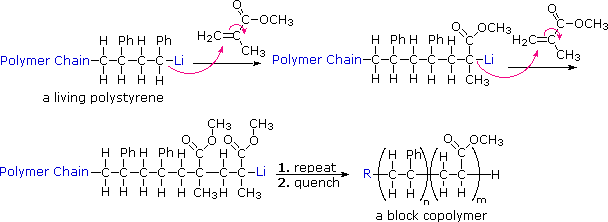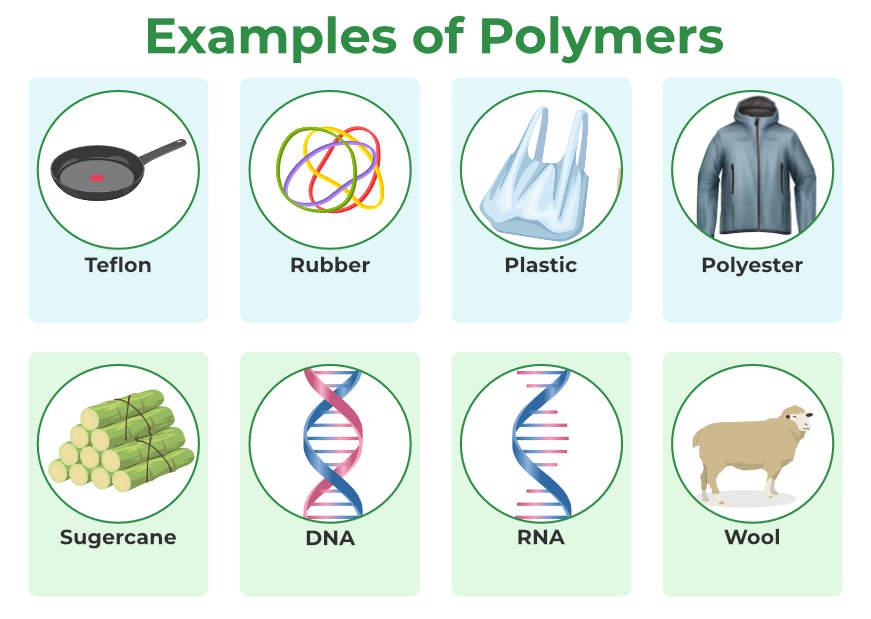Leading Uses Polymers: Enhancing Everyday Products
Leading Uses Polymers: Enhancing Everyday Products
Blog Article
Exploring the Varied Applications and Advantages of Polymers in Different Industries
Polymers, with their diverse range of properties and capabilities, have actually become indispensable in different sectors, each enjoying unique benefits from their application. From improving safety and security and performance in the automotive market to transforming clinical devices in the medical care industry, polymers play a crucial function.
Automotive Field Applications
Polymers play an essential role in improving the efficiency and toughness of numerous components within the vehicle sector. These flexible products are extensively used in the production of various parts, varying from indoor components to under-the-hood applications. One famous usage of polymers in the automotive market remains in the manufacturing of lightweight elements. By changing typical metal parts with polymer-based options, lorries can achieve enhanced gas performance without compromising on stamina or security.

Health Care Market Benefits
In numerous medical care applications, the benefits of making use of polymers are extensively acknowledged for their varied array of beneficial properties. Polymers play a vital function in the health care market because of their adaptability, biocompatibility, and cost-effectiveness. Among the main advantages of polymers in healthcare is their ability to be tailored to specific needs, such as adaptability, durability, and biodegradability, making them ideal for a wide variety of clinical applications.
Polymer-based products are extensively used in clinical gadgets, such as catheters, implants, prosthetics, and medication delivery systems, due to their biocompatibility and capacity to resemble all-natural tissues. These products can lower the danger of allergic reactions or rejections, enhancing patient safety and end results. In addition, polymers are light-weight, making them suitable for wearable medical devices and guaranteeing client comfort.
Additionally, polymers enable the growth of innovative therapy techniques, such as hydrogels for tissue design and nanocomposites for targeted medication delivery. Their convenience of handling and sterilization makes them crucial for preserving high standards of health in healthcare setups. In general, the varied advantages of polymers add considerably to advancements in clinical technology and individual care.
Environmental Advantages of Polymers

Furthermore, polymers can add to power financial savings due to their light-weight nature. In sectors such as transportation, light-weight polymer products can help in reducing gas consumption and greenhouse gas exhausts. In addition, polymers can allow the development of energy-efficient items such as insulation products that boost energy conservation in structures.
In addition, polymers play a critical function in minimizing water pollution. The usage of polymer-based filtering systems can properly get rid of toxins and contaminants from wastewater, securing water resources and ecological communities. In general, the ecological benefits of polymers make them beneficial possessions in advertising sustainability and environment-friendly methods across various sectors.
Polymers in Electronic Devices and Technology
Considering the raising demand for ingenious and sustainable solutions in contemporary industries, the combination of sophisticated polymer technologies in the world of electronic devices and innovation has arised as a critical strategy for driving performance and performance. Polymers have actually transformed the electronic devices market by enabling the manufacturing of lighter, more adaptable, and read this resilient digital devices. From mobile phones to clinical gadgets, polymers play an important duty in enhancing product layout and functionality.
One considerable advantage of polymers in electronics is their insulating residential properties, which help safeguard fragile electronic elements from ecological elements and electric disturbance. Additionally, polymers are crucial in the advancement of adaptable displays, wearable innovation, and published electronics, providing limitless opportunities for creating their explanation wise and interconnected tools.
Furthermore, making use of polymers in digital product packaging has resulted in improvements in miniaturization and thermal monitoring, improving the overall performance and dependability of digital systems. As modern technology remains to evolve, the adaptability and versatility of polymers will certainly drive even more advancement in the electronic devices sector, forming the future of modern technology.
Role of Polymers in Construction and Infrastructure
Polymers use various advantages in the building and construction industry due to their convenience, resilience, and cost-effectiveness. One vital function of polymers in construction is their usage in finishes and sealants, providing defense against ecological elements such as moisture, UV radiation, and deterioration.
Additionally, polymers play an important role in lasting construction techniques by allowing the growth of energy-efficient structures. Shielding materials made from polymers aid regulate interior temperatures, minimizing the need for home heating and cooling down systems and eventually decreasing energy intake. The usage of polymer-based composites in framework projects such site link as bridges and roadways enhances their durability and lowers upkeep prices. In general, the unification of polymers in construction and framework showcases their considerable influence on contemporary design techniques.
Conclusion
To conclude, polymers play a vital duty in numerous sectors such as automotive, healthcare, environmental, electronics, and building. Their flexible homes make them beneficial in creating ingenious options and items. From enhancing fuel effectiveness in cars to improving medical devices, polymers provide various advantages. Furthermore, their influence on reducing waste and promoting sustainability highlights their relevance in modern-day applications. The widespread use of polymers demonstrates their significant payment to progressing innovation and improving lifestyle.
Report this page